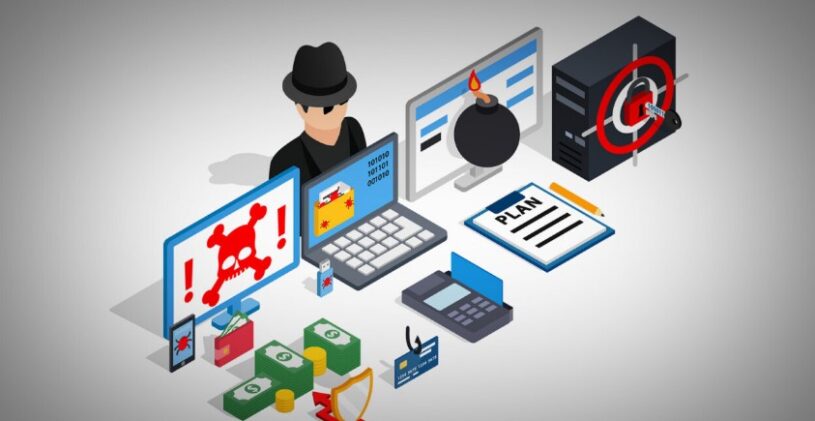You’re probably aware that there are various web proxy sites on the internet. But do you know what they are, and how they might put your data at risk? In this blog, we’ll discuss the potential dangers of web proxy sites and provide tips for staying safe. So, buckle up and let’s dive in!
How Can Web Proxy Sites Steal Data?
When you use a web proxy, there is always a risk that the site may be stealing your data. But with tested proxy site cc you are getting full anonymity and privacy without any risk for your data.
In order to protect yourself, you need to understand what types of data are vulnerable and how web proxies can access them.
- They can masquerade as legitimate websites, but their true purpose is often to capture personal information such as usernames and passwords.
- When you enter data into it and click the “submit” button, the data is sent through an unsecured channel without encryption.
- If a hacker has access to the proxy server, he or she can easily intercept this information and use it for malicious purposes.
In addition to stealing login credentials, they have been known to inject malicious code into visited pages in order to collect sensitive information such as credit card numbers or banking details.
While some of them employ safeguards such as encryption or SSL verification tools which help protect data, many do not provide these basic security measures. It is therefore important that users be aware of the risks before they decide to use a web proxy service.
Types of Data at Risk

Data that can be accessed or stolen through web proxy sites varies depending on the type of proxy you’re using. A standard HTTP proxy is able to access almost all types of data that’s sent and received from your computer, such as document files, user credentials, and browsing activity. Some HTTP proxies may even be able to view encrypted data if the session is unencrypted after the request has been made.
Other types of proxies such as SOCKS will have more limited abilities. These proxies primarily act as relays between client and server programs, allowing access to multiple IP addresses that are assigned dynamically. These proxies are not usually capable of viewing web page content or other details about your computer’s activities like a standard HTTP proxy can.
The main type of data at risk when using these sites is personally identifiable information (PII). PII includes information such as a person’s name, address, date of birth, social insurance number, passport number and bank account numbers – any private information that can be used to identify an individual. It’s important to ensure that any website or service you use with a web proxy has sufficient security measures in place to protect this type of data from malicious actors.
Potential Ways to Protect Yourself

Using them can be convenient and sometimes the only option available if you want to access certain websites. However, there is a risk of data theft if you are not careful. It’s important to understand the potential risks involved with using these services and take steps to protect yourself while browsing. Here are some suggestions on how to shore up your security while using these sites:
- Make sure the site is legitimate: Make sure that you are using a legitimate web proxy service, as many malicious actors have created seemingly identical sites to steal sensitive data from unsuspecting users. Before entering any personal information on a website, research it thoroughly and double-check its security certificates.
- Use secure login practices: When setting up your account on a web proxy site, it is important to use strong passwords, two-factor authentication when available, and also ensure that all additional settings recommended for better security are enabled.
- Secure your browser settings: Be aware of browser settings that may compromise security. If possible, disable or limit cookie storage or reset them frequently.
- Be aware of traffic encryption status: Even though traffic in both directions between your computer and the web server is most likely encrypted over an HTTPS connection when visiting an HTTPS website through a proxy site, confirm the connection status with each website you visit.
What to Do if Your Data is Stolen

If you ever suspect that your data may have been stolen through this type of site, there are steps you can take to help protect yourself. First and foremost, it’s important to remember that just because a website is a web proxy site does not mean its intentions are malicious. A variety of free and low-cost services offer online protection, and the majority of sites exist for legitimate purposes.
However, if you believe your data has been compromised due to use of a web proxy site, here are steps you can take:
- Change your passwords immediately: Passwords should be changed often as a precautionary measure even if there is no indication of fraud or account compromise. Make sure each password consists of at least eight characters and contains both upper- and lowercase letters as well as numbers and symbols. It’s also important to use unique passwords for all accounts.
- Check credit reports: Go over the reports with a fine-tooth comb and alert authorities if any suspicious activity is spotted. Credit reporting bureaus provide monthly reports at no additional charge; however, they must be requested directly from the bureau.
- Put credit alerts on accounts: Bank customers may choose to put extra protection in place against thefts or frauds by setting up credit alerts on their accounts – alerts that go off when suspicious activity is detected or their account balance drops below specified parameters. Accounts with credit alerts in place also make it more difficult for thieves to open new bank accounts in an individual’s name using stolen personal information – something identity thieves sometimes attempt when attempting major frauds or thefts involving large amounts of money.
Conclusion
Ultimately, the risk associated with these services depends heavily on the proxy itself. Legitimate proxies may use encryption to protect your data and do not collect or sell personal information. On the other hand, some proxies are more likely to pose a risk to your security, as they offer no safeguards against data breaches or other malicious activity.
It’s important to do your research into its legitimacy and security practices before providing any of your personal information. Understanding how they operate, asking questions when necessary and taking extra steps to protect yourself online can help ensure that you stay safe while enjoying web surfing through a proxy server.
